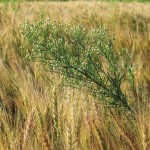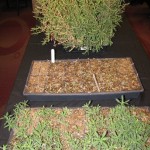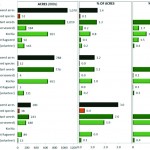Controlling weeds in organic systems is a bit like balancing your chequebook, except that the goal is to get the (seed) bank account as low as possible. “When managing annual weeds, the important thing is the seed bank,” said Eric Gallandt, a weed ecologist in the latest webinar of this spring’s Western Canadian Organic Webinar






